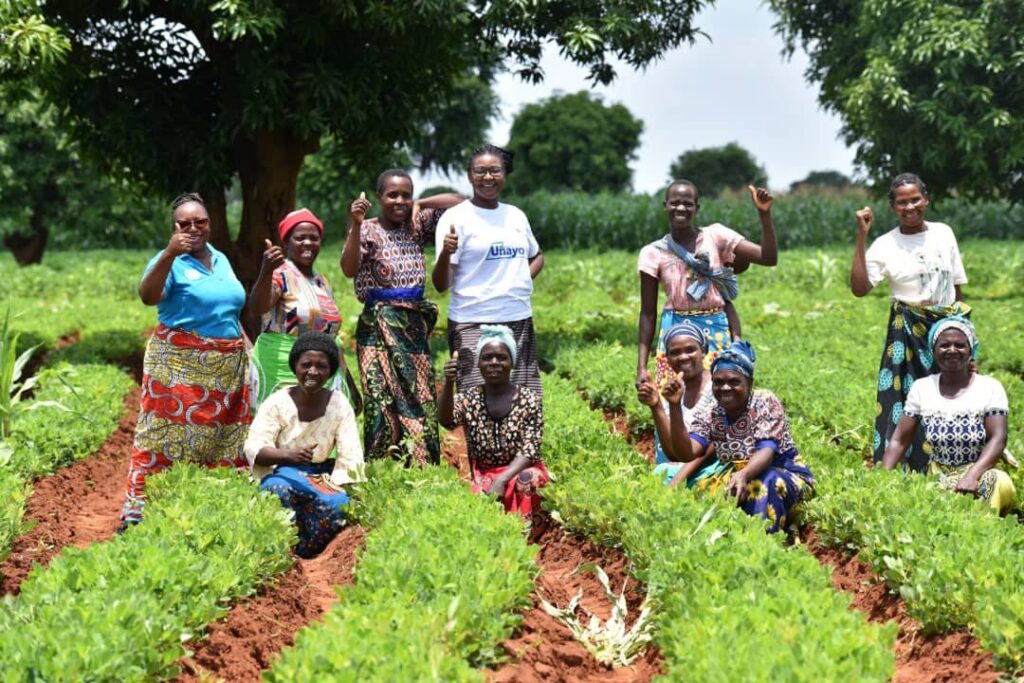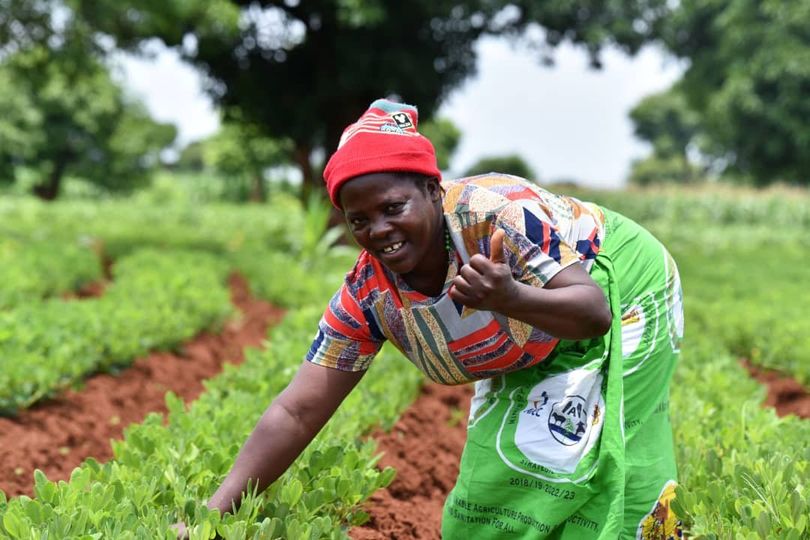By Yamikani Sekeni

The negative effects of climate change are visible in the devastating conditions mankind is experiencing in this era. Undoubtedly, climate change has altered almost every facet of life to the extent that without innovation and adaptation, life would be unbearable.
In agricultural sphere, climate change means declines in crop yields, low livestock fertility and loss of environment. All these have a direct bearing on food and income security which are threatened. The impact of the Russia-Ukraine war, which has hit energy prices hard, is also a factor to be considered as it has a cyclic effect on agriculture productivity which also relies on fuel and other forms of energy impacted by the Russian conflict.
Commercial farming is bearing the brunt. And overall, livelihoods are greatly affected.
In all this, women play an integral role in the whole agriculture value chain. Like in many sub-Saharan countries where seventy percent of women embrace farming, Malawi’s agriculture workforce is dominated by women, hence they are more likely to be affected by climate change.
In most rural areas, there has been a paradigm shift from purely subsistence farming to commercial farming. It is impressive to see women taking up farming as business thereby contributing positively to the growth of the economy.
Despite the pangs of climate change, some women from Chioko Village in the area of Traditional Authority Simphasi in Mchinji have come out triumphant through the Climate Smart Agriculture (CSA) project. This is one of the numerous outcomes emanating from the partnership between Standard Bank and UN Women.
The three-year project was implemented under the theme “Contributing to the Economic Empowerment of Women in Malawi through Climate Smart Agriculture” in order to strengthen women participation in strategic decision making, financial enhancement, change in livelihood and surge in groundnuts productivity.
“The modern technologies we have been exposed to through this programme has helped us (farmers) to mitigate the impact of climate change. We have been equipped with smart agriculture practices that are maximizing crop yields and saving labour cost,” according to Genevieve Chinyamaulo one of the groundnuts farmer under Chioko Cooperative in Mchinji.
Comparatively, Chinyamaulo said that the three years she has been practicing smart agriculture have been very successful than the previous years.

“For the past three years since our cooperative started receiving farming expertise I have been realizing bumper yields. This has taken my social economic status to great height as I am able to provide for my family,” she said.
The knowledge imparted to the women farmers in the CSA has honed their skills in the groundnuts supply chain.
“Before the coming of Standard Bank and UN Women I used to grow groundnuts without proper skills. I was unable to determine certified seed that would effectively suit the current weather patterns influenced by the climate change,” said another farmer Dorothy Mbewe.
Mbewe added that adherence to the proper guidelines has been a catalyst of transformed life for her family.
“Three years of the partnership has been beneficial, right now I have ventured into livestock production that have come out of the groundnuts farming,” she added.
Evelesi Jemusi of Chisomo Club from the district reiterated on the need for women to take a leading role in implementing climate adaptive agriculture for a sustainable groundnuts production.
“Women should not doubt themselves in all aspect of life, we need to raise up and adopt technologies in the climate smart agriculture to mitigate the effects of climate change. We should be on the forefront to embrace these new ways of doing things to maximize crop production. We are privileged to learn issues of gender equality through the project that have empowered us,” said Jemusi.
Sentiments from these few farmers echo voices of thousands other women farmers that have benefited in the districts where the project was being implemented; Lilongwe, Mchinji and Mzimba.
Standard Bank Plc provided funding worth K350 million as well as ongoing support through financial literacy and other programmes. The contribution to the economic empowerment of women through CSA reaffirms the bank’s commitment towards enhancing gender equality.

“Standard Bank is a keen supporter of women empowerment to help bridge gender inequality. We are pleased to note that our partnership with UN Women has helped local women to realize their goals through modern agriculture,” said Phillip Madinga, Chief Executive for Standard Bank.
The CSA project supports Standard Bank’s drive to create a gender-equal Malawi and aligns it with its purpose of driving the country’s growth.
“As a bank we believe that Malawi is our home and we drive her growth. Therefore, we remain committed to continue supporting women agribusiness communities for them to adopt modern equipment, knowledge and technologies as a way of contributing towards national development,” said Madinga.
Therese Gondwe, UN Women, Malawi Country Office, Program Specialist: Women Economic Empowerment Portfolio admitted that her organization recognize CSA as a Flagship Program Initiative (FPI) that have high-impact.
“UN Women appreciates CSA as a scalable initiative that deepens our efforts on Gender Equality and Women’s Economic Empowerment (GEWE). Through the CSA programme, UN Women has supported women to have increased access to good quality groundnut seed, access extension services, labor-saving technologies while participating fully and equally in decision-making around groundnut value chain,” said Gondwe.
During the onset of the programme, it was projected that 10, 000 women farmers will benefit from all the three districts. However, up to 10, 400 farmers fully benefited from the project.
“It is pleasing to note that despite COVID 19 slowing implementation of project activities we have recorded positive results. It has been a great learning process more especially in dealing with challenges that women face in the implementation of smart agriculture. We revere in the accomplishment registered this means that we reached the overall objectives of the project,” she said.
According to Godfrey Pumbwa of African Institute of Corporate Citizenship whose organizations offered extension services, the project has contributed to the resilience of women in the groundnuts production.
“We opted for groundnuts because it has Nitrogen fixation and the crop fetches more money as compared to other crops. Therefore, due to the impact of climate change we wanted to help farmers in the management of Aflatoxin to intensify production,” said Pumbwa.
The project incorporated financial literacy, issues of gender and championed the establishment of cooperatives so that their groundnuts could fetch high prices on the market.
The project that focused on Gender Responsive Climate Smart Agriculture through the groundnuts value chains, was founded on United Nations Sustainable Development Goals. The programme in particular focuses on SDG 2 – Zero Hunger, SDG 5 – Gender Equality and SDG 13 – Climate Action.


